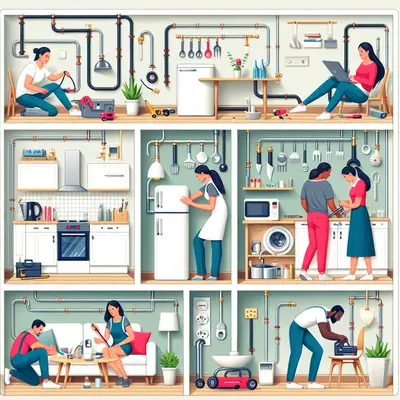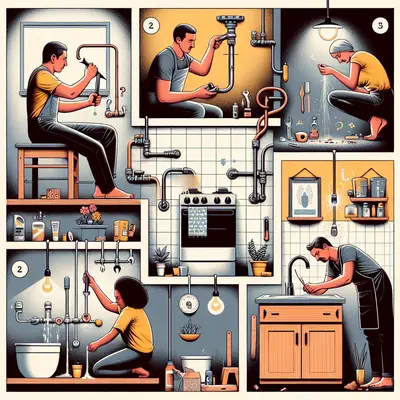Step 1: Embrace the Power of Prevention
The best way to address common household problems is to prevent them from happening in the first place. Regularly inspect your appliances, plumbing, and electrical systems for signs of wear and tear. Clean your gutters to avoid water damage, vacuum your refrigerator coils to enhance efficiency, and regularly test your smoke detectors to ensure they're working properly. Prevention might require a bit of extra effort, but it can save you a lot of time, money, and stress in the long run.
Step 2: Master the Essential Home Repair Skills
You don't have to be a professional handyman to handle most home repairs. Learn how to unblock a drain, reset a tripped circuit breaker, or patch up a hole in the wall. Plenty of online tutorials and how-to guides can help you master these skills. By acquiring basic home repair skills, you'll feel more confident and capable of maintaining your home.
Step 3: Invest in Quality Tools
Having the right tools can make all the difference when it comes to home repairs. Invest in a quality tool kit that includes essentials like a hammer, screwdriver set, tape measure, pliers, and a drill. With these tools at your disposal, you'll be well-equipped to tackle most common household repairs.
Step 4: Know When to Call a Professional
While it's great to be a DIY master, it's also important to know when to call in a professional. Some issues, like serious plumbing problems or electrical repairs, are best left to the experts. Trying to fix these problems yourself can lead to further damage or even pose a safety risk. Remember, there's no shame in asking for help when you need it.
Conclusion
Home repair doesn't have to be a daunting or expensive endeavor. By embracing prevention, learning essential skills, investing in quality tools, and knowing when to call a professional, you can effectively manage common household issues. So, roll up your sleeves, and transform your home repair strategy today!



